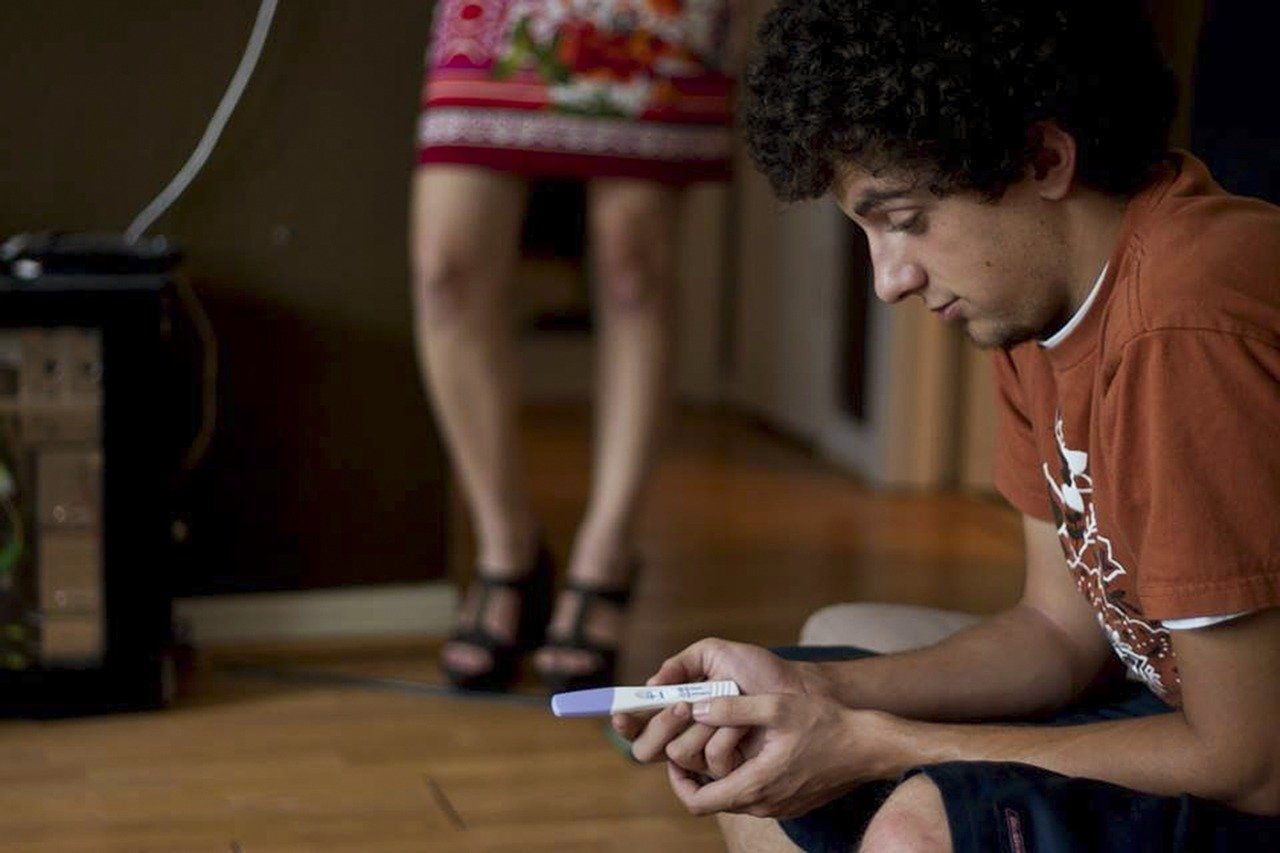Overview: What is infertility?
Infertility means that a man cannot conceive a child naturally (= inability to conceive) or a woman cannot become pregnant. Another word for this is sterility. Experts also use the term “infertility”. For a woman, this means that she can become pregnant, that conception is possible in principle, but that she cannot carry a viable child to term. Colloquially, however, all terms are often used synonymously, although their meaning is not the same Not every couple that does not get pregnant straight away has infertility in one or both partners. Most couples try for six to twelve months before success is achieved in the form of pregnancy. The World Health Organization (WHO) defines infertility as follows: only if a couple has not achieved pregnancy despite regular, unprotected sexual intercourse, i.e. the couple remains unintentionally childless, could infertility be present in the man or woman. In this case, a gynecological examination of the woman and a urological examination of the man is recommended. A variety of possible causes can lead to a reduction in fertility and thus hinder the desire to have children: Physical and psychological factors are possible, but lifestyle can also play a role. Examples include prolonged stressful situations, heavy nicotine consumption or high alcohol consumption, but also obesity. The reasons are just as often to be found in men as in women – sometimes both at the same time. In addition, in some couples, no cause is found despite both partners having undergone an inconspicuous examination. In some cases, fertility is only reduced. In many cases, we can treat the causes of infertility so that couples can still become parents naturally. Today, reproductive medicine also offers a wide range of options for artificial insemination, so that pregnancy can often still be possible.
Infertility – frequency and age
It is not possible to quantify exactly how common infertility is. Couples often don’t consult a doctor and shelve their desire to have children if it doesn’t work out. They resign themselves to remaining childless or adopt a child. Experts therefore assume that the number of unreported cases is high. In Switzerland, around one in five couples remain unintentionally childless. Worldwide, around one in six couples have difficulties conceiving a child and becoming pregnant within the first twelve months. In 2019, researchers at the University of Geneva conducted the first nationwide study on male infertility in Switzerland. They examined the sperm quality of more than 2,500 young men between the ages of 18 and 22 in Switzerland. According to the study, many men had impaired semen quality: 60% of these young men did not reach the normal values: either too few sperm were present, their motility was restricted or the number of normally formed sperm was reduced. The causes of infertility are roughly equally distributed between women and men in percentage terms, with approximately 30% clearly female and 30% clearly male factors. In about 20% of cases, both partners are involved if pregnancy does not occur.
Infertility: causes and risk factors
The causes of infertility can be very diverse. They can also affect the man and the woman, or both at the same time. Sometimes only fertility is reduced and such couples have much more trouble getting pregnant than others. Physical and psychological factors as well as lifestyle are possible causes of infertility.
Infertility: causes in women
Older age is a risk factor for infertility. Many women today dedicate themselves first to their job and career and postpone their desire to have children further back in their life planning, into the third decade of life. But the egg cells age with you! The older a woman is, the higher the risk that egg maturation may be impaired and the egg reserve limited.
Hormonal causes of infertility
A functioning hormone metabolism is essential if a woman wants to become pregnant. But sometimes they are out of balance. As a result, a sufficient number of eggs may not mature, ovulation may not occur or the uterine lining may not build up sufficiently and therefore not be prepared for implantation of the embryo. Sometimes the quality of the cervical mucus changes in the event of hormonal imbalances so that the sperm cannot reach the uterus. Possible cause of hormonal disorders:
- Overweight: Overweight and obesity disrupt the hormonal balance. Adipose tissue is hormonally active, i.e. it produces hormones such as androgens. This can lead to egg maturation no longer functioning properly.
- PCO syndromeIn women with polycystic ovaries, the immature follicles atrophy prematurely. Experts assume that the cause is a metabolic disorder.
- Hyperthyroidism (hyperthyroidism) or hypothyroidism (hypothyroidism)
- Impaired insulin metabolism, for example in the blood sugar disease diabetes mellitus
- Increased prolactin levels (hyperprolactinemia, either due to increased production of the hormone prolactin in the pituitary gland (= hypophysis), or due to side effects of medication.
Physical causes of infertility
Infertility can also have organic/structural causes. Some examples:
- Fallopian tubes: They can be fused, blocked, obstructed or immobile, for example due to inflammation, infection (e.g. chlamydia) or an operation. This means that the transportation of the egg through the fallopian tubes does not work properly.
- Adhesions of the uterus
- Ovaries: Inflammation and damage
- Endometriosis – dispersed uterine lining that is deposited on other organs and can lead to adhesions.
- Myomas – benign tumors in the uterus
- Cysts that can recur again and again.
- Malignant tumors (cancer), for example of the ovaries, fallopian tubes or uterus
- Congenital malformations, such as of the fallopian tubes, the uterus
- Defense reaction of the immune system that is directed against sperm or eggs – which may be a reason why fertilization is not possible.
Infertility: causes in men
In men, too, there are a number of factors that can lead to a reduction in fertility and thus hinder the desire to have children. As in women, men also experience age-related changes in the various structures of the testicular tissue. In particular, there is a reduction in Leydig cells, which produce the male sex hormone testosterone. This means that an advanced age can also influence fertility, although spermiogenesis usually remains largely unaffected by the male ageing process. Some further examples:
- Reduced sperm quality: In some men, the sperm are not normally formed, are not sufficiently motile or there are too few sperm per milliliter of ejaculate. The spermiogram, according to WHO 2010, serves as a guideline.
- Reduced sperm production: The ejaculate (= seminal fluid) does not contain enough functional sperm. Possible causes can be an undescended testicle (cryptorchidism), varicose vein-like dilation of the testicular veins in the spermatic cord (plexus pampuniformis) (= varicocele) or an injury to the testicle (accident). However, hereditary (=genetic) causes are also possible.
- Mumps at a young age – the infectious disease can lead to severe testicular inflammation and irreversibly impair the function of the testicles and be a reason for involuntary childlessness.
- Inflammation of the testicles, epididymis, prostate or urethra
- Blocked vas deferens or epididymal ducts: There are men who produce sufficient quantities of sperm, but these cannot reach the ejaculate. The reasons can be: injuries, operations (e.g. hernia), sexually transmitted diseases (e.g. chlamydia), inflammation, cystic fibrosis (a hereditary disease) or congenital malformations.
- Testicular cancer: regardless of the tissue type of the tumor, such men can often have a pronounced impairment of fertility. Associated chemotherapy/radiation can also lead to damage to the testicular tissue and thus to a reduction in fertility. Therefore, cryopreservation (= freezing of sperm) should always be discussed with the patient in the event of a later desire to have children.
- Hormonal disorders, such as thyroid and adrenal gland diseases
- Fertility disorders due to systemic diseases: Alcoholism, liver cirrhosis, haemochromatosis (iron storage disease), chronic kidney failure
- Immunological reactions: Both men and women can develop antibodies (spermatozoa antibodies = ASA) against their own sperm (autoimmune infertility), for example after injuries or inflammation.
- Genetic diseases, e.g. Klinefelter syndrome – this is a congenital, numerical chromosomal disorder. Affected men have one too many female X chromosomes (47 XXY). Defects in the Y gene also play a significant role in men with infertility. Cystic fibrosis is the most common (4-5%) autosomal recessive hereditary disease in our latitudes. This can also be a cause. A possible, rarer cause is primary ciliary dyskinesia (Kartagener’s syndrome).
Infertility: causes that can affect both sexes
We know of other causes of infertility that affect both men and women. These include, among others:
- Pronounced, prolonged stress situations, emotional strain in everyday life and at work
- Medication, chemotherapy, anabolic steroids
- unhealthy diet
- Overweight or underweight
- Smoking
- Excessive alcohol consumption
- Drug use
- Iatrogenic factors, such as operations, radiation
- Environmental toxins, e.g. heavy metals, hydrocarbons in solvents, plant protection products (pesticides, herbicides)

Symptoms: Infertility itself is not noticeable
The infertility itself does not cause any symptoms. But there are some signs in men and women that may indicate infertility. The symptoms depend on which causes are probably responsible for involuntary childlessness in men and women. Inflammations, infections or hormonal disorders can cause a variety of different complaints. For example, women experience
- Cycle fluctuations
- Menstrual cramps: severe menstrual pain, long, heavy periods or periods that are too light, bleeding between periods
- Pain in the lower abdomen, abdominal cramps
- Pain during sexual intercourse
- Excessive hair growth or skin problems (acne) due to hormonal imbalances
- Miscarriages
In men, the following warning signs may indicate infertility:
- Increase or decrease in body weight
- Unexplained swelling of the testicles, changes in size and consistency of the testicles
- Testicular pain
- Pain when urinating
- Discharge from the penis
- Problems with erection or ejaculation, change in penis shape/curvature
Unwanted childlessness can in turn have serious consequences. This can lead to massive psychological, partnership and sexual problems for couples who try unsuccessfully to conceive a child over a long period of time.
Infertility: Diagnosis with us
Couples who remain childless for up to two years despite regular, unprotected sexual intercourse should seek help and medical advice. We are the right place to go to clarify a possible infertility. It is important that both partners have themselves checked and examined in order to find the cause of the unfulfilled desire to have children. Diagnostics begins with a detailed discussion with us. This is followed by different examinations for men and women in order to narrow down the possible causes of infertility.
Infertility: diagnosis in men
- Examination of the external genital organs: We can detect malformations, diseases and changes to the penis or testicles.
- Palpation of the testicles, epididymis, examination of the spermatic cord
- Spermiogram: analysis of the ejaculate, assessment of the appearance, number and motility of the sperm, as well as other examinations
- Hormone examination: e.g. determination of testosterone, thyroid values
- Sometimes a biopsy of the testicles or a genetic test is indicated.
Infertility: diagnosis in women
- Gynecological examination of the female genitals (uterus, vagina).
- Colposcopy: Examination of the vagina and cervix using a special instrument with magnifying optics (colposcope)
- Smear test: analysis of the cell material in the laboratory, detection of pathogens
- Ultrasound (sonography)
- Hormone status: determination of various hormones such as oestrogen, progesterone, LH, FSH, AMH, testosterone, prolactin or thyroid hormones
Occasionally, further diagnostic methods are necessary to detect diseases of the fallopian tubes:
- Hysterosalpingography (HSG): X-ray examination of the fallopian tubes and uterus using a contrast agent. It shows the inside of the uterine cavity as well as constricted or blocked fallopian tubes.
- Hysterosalpingocontrast sonography (HSKS): An ultrasound examination of the uterus and fallopian tubes using a contrast agent.
- Uterine endoscopy (hysteroscopy): A special endoscope, the hysteroscope, is used. It is equipped with a small camera and a light source. The doctor inserts it into the uterus via the vagina and the cervix.
- Laparoscopy (laparoscopy): An endoscopic method in which a so-called laparoscope is used, e.g. if endometriosis is suspected.
Above-average pregnancy rates
Our university fertility center is at the forefront of our field and we regularly report very high pregnancy rates. This is confirmed by FIVNAT-CH, Switzerland’s national IVF register. In order to ensure and continuously improve the quality of our treatment, the Fertility Center at the USZ has been certified according to ISO 9001:2015 for many years and our laboratories are accredited according to ISO/IEC 17025.
Infertility: prevention, early detection, prognosis
A number of modifiable factors are known, including personal lifestyle factors, where appropriate adjustments can lead to an improvement in fertility:
- Let us treat inflammations, infections and other illnesses correctly and in good time.
- Thyroid and metabolic diseases, such as diabetes mellitus, should be optimally controlled and regularly monitored.
- Make sure you maintain a healthy weight. Avoid overweight and obesity by eating a fresh, healthy and balanced diet and taking plenty of exercise and sport. Being underweight can also increase the risk of infertility, for example in the context of an eating disorder (e.g. anorexia). Seek professional help in good time.
- Refrain from smoking. And if you are a smoker: Try to reduce your smoking, or at best give it up completely. We offer you professional support if you are not successful on your own.
- Consume alcohol in moderation and take regular alcohol breaks. Do not use other drugs either.
- Reduce stress: Good stress management strategies can reduce the risk of infertility. Autogenic training, muscle relaxation exercises, yoga or similar can reduce stress in everyday life.
- Safer sex: Protect yourself against sexually transmitted diseases (STDs), such as chlamydia, as STDs can reduce fertility in both partners. Always have any illness treated by a doctor (both partners).
- Make sure you are adequately vaccinated, especially against the classic childhood disease mumps.
Course and prognosis of infertility
Infertility can have a decisive impact on a couple’s relationship, sexuality and mental state. Often, everyday life, work and social contacts with other people (friends, family) also suffer if a couple tries unsuccessfully to get pregnant for many months. Couples with an unfulfilled desire to have children often fluctuate between hope, joy and euphoria, as well as dejection, anger, sadness, deep despair, aggression, powerlessness and depressive moods. Unwanted childlessness can leave deep scars on a partnership and sometimes even put a relationship to the test due to the enormous psychological pressure. This is because both partners do not always deal with childlessness in the same way and tensions can arise. We offer professional help and psychological support for couples – both before and during fertility treatment. Some couples accept their childlessness and realign their life plans. Adoption can also be an option in the case of an unfulfilled desire to have children.
Course and prognosis after fertility treatment
Whether a pregnancy occurs after artificial insemination depends on many different factors. All treatment methods require patience and perseverance from the couple. In addition, the psychological strain increases with each further attempt. Pregnancy can often be achieved, but couples do not always actually become parents. Various complications can occur in the course of the disease:
- Overstimulation and overreaction of the ovaries due to hormone treatment
- Multiple pregnancy
- Ectopic or tubal pregnancy
- Miscarriage



